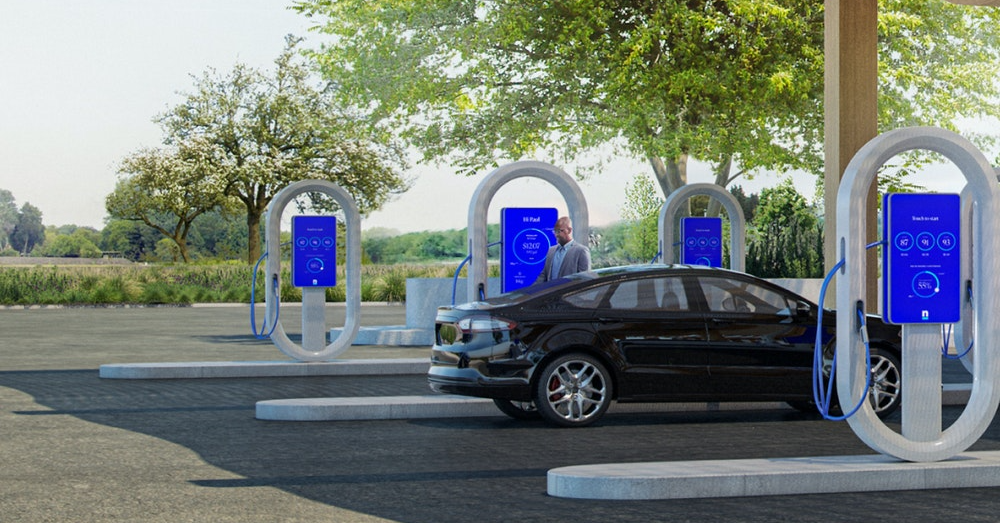The production process of EVs isn’t much better than gasoline models. Maybe a new type of gasoline could be the answer.
Arguments often arise regarding the benefits of electric vehicles. The process of mining materials for batteries is harmful to the planet, and if all we drive is EVs in the future, finding the rare-earth metals needed to build these batteries could become prohibitive. If there could be a positive environmental process for creating the liquid fuel fur current internal combustion engines, there could be an argument for keeping these vehicles around.
Nacero Creates a “Green Gasoline”
Using hydrocarbons and smaller methane molecules from natural gas, Nacero developed a process for creating gasoline that cuts down the carbon footprint during the process this reduction has the potential to eventually take the number to zero. Still, right now, the company claims that the four million vehicles using Nacero gasoline offer the same carbon savings as would happen if 11 million internal combustion engine vehicles were swapped with EVs. This sounds incredibly overzealous, but after a lot of science speak in this linked MotorTrend article, you’ll see how this new fuel could equate to emissions savings during the production process.
When Will this New Gasoline be More Widely Available?
The new gasoline from Nacero, which uses a “Green” process for its production, should be more widely available on the market in 2025. When this is the case, the Nacero Blue fuel should be priced competitively with crude-based gasoline. We know that much of crude oil processed to make gasoline is wasted with several unusable byproducts. Thankfully, one by produce is diesel fuel, but otherwise, not much of what’s wasted is useful. The new Nacero Green should become a renewable natural gas source.
The next question we’ll need to answer is whether or not Nacero gasoline will be efficient enough to replace the electric vehicle push going on right now?
In the Meantime, How Can You Save on Fuel?
Until we have the new Nacero green gasoline in the market, we don’t know the impact of this new fuel and how it will give us the environmentally positive impact we desire. There are many ways you can reduce the amount of gasoline you use every day to ensure you produce fewer emissions into the environment. Let’s take a look at some that could help you during your daily drive.
Purchase a More Efficient Vehicle
If you’re in the market for a new vehicle, you could look for one that offers a hybrid powertrain. If you don’t want to drive a fully-electric vehicle, you’ll be pleased to have a hybrid or plug-in hybrid model to ensure you can have the fuel savings you desire. A PHEV model offers some form of electric driving that makes it possible for you to travel for a short distance using only electricity to power the batteries. There are many great options for hybrid and PHEV models in the market today.
Carpool Whenever Possible
Large cities and municipal areas have a special lane for vehicles that have several passengers inside. This lane is called the High Occupancy Vehicle (HOV) lane, and it’s often referred to as the carpool lane. Get together with some of the people you work with and live near to create a carpool that can help save on fuel costs. If you have four people that used to ride separately to work every day that now ride together, you’ll cut your fuel costs for commuting by 75 percent. Take turns driving and riding, and everyone can enjoy the savings.
Using Cruise Control in the Highway Saves Fuel
Even after we have the Nacero green gasoline in the market, we want to save fuel. One way that has always been successful is to use the cruise control function when driving on the highway. This system regulates your speed, which cuts down on fuel consumption. Most advanced cruise control systems are programmed to run as efficiently as possible when out on the highway. If you’re in stop-and-go traffic, this could also help you save your feet a little. Some adaptive cruise control systems are ideal for heavy traffic, giving you a short break from driving.
Reduce your Speed Whenever Possible
Higher speeds consume more fuel than lower speeds. Even though the speed limit on most interstates is now 70 mph, vehicles are still made to function best at 55 mph. If you reduce your speed from 75 to 62 mph, you could save nearly 15 percent of your fuel consumption. Of course, lower speeds don’t always equal fuel savings. Driving around in the city consumes more fuel than driving on the highway. Try to use highways whenever possible during your commute or when you need to run a few errands.
Speaking of Errands, Combine Them
If you’re trying to save gasoline, the best way to do it is to stop driving your vehicle. The second best way is to drive it less. This means you need to limit the number of times you head out to run errands each week. If you can combine several errands into one trip instead of a few trips over several days, you’ll take care of two problems. First, you’ll use less gas, and second, you’ll save time because you don’t have to perform the same drive several times a week.
Drive More Conservatively
While we wait to see if this new green gasoline will compete against EVs as the future of driving, you can save gas by driving more conservatively. This means ensuring your tires are properly inflated, you don’t accelerate or brake hard, you use the A/C sparingly, and you keep the windows closed as often as you can. Take the heavy loads out of your car, take it in for regular service, and avoid long idles at lights and stop signs. These habits might not feel like you’re saving much on fuel, but all of these tips can keep you from spending more than you should on gas.
